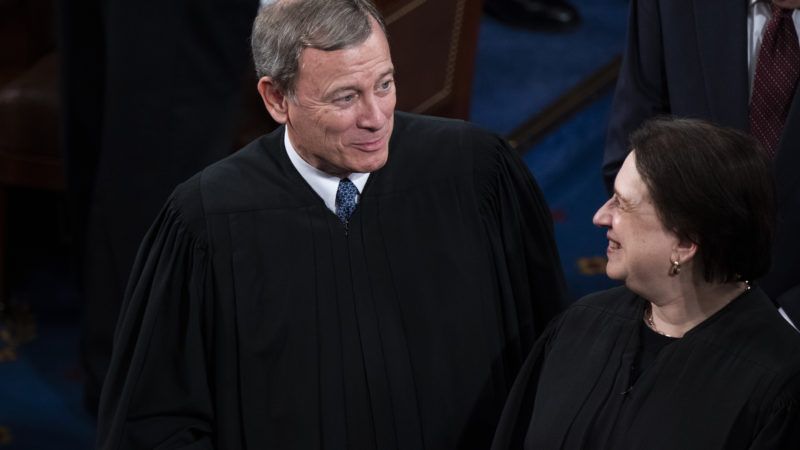Supreme Court Delivers Big Win for School Choice and Religious Liberty Advocates
SCOTUS rules 5-4 in Espinoza v. Montana Department of Revenue.

The U.S. Supreme Court delivered a major victory today for both school choice and religious liberty advocates. "A State need not subsidize private education," declared Chief Justice John Roberts. "But once a State decides to do so, it cannot disqualify some private schools solely because they are religious."
The case is Espinoza v. Montana Department of Revenue. It centered on a 2015 scholarship program created by the Montana legislature "to provide parental and student choice in education." The program functioned by offering a tax credit to individuals and businesses who donated to private, nonprofit scholarship organizations, which used those donations to fund educational scholarships. Qualifying families could then use the scholarship dollars to help send their children to a "qualified education provider," including religiously affiliated private schools.
But the Montana Supreme Court killed the scholarship program in 2018, holding that it violated a provision of the Montana Constitution which bars the use of public funds "for any sectarian purpose or to aid any church, school, academy, seminary, college, university, or other literary or scientific institution, controlled in whole or in party by any church, sect, or denomination."
The Montana Supreme Court acknowledged that U.S. Supreme Court precedent—which has upheld the constitutionality of similar school choice programs—cut against its decision. But "we conclude that Montana's Constitution more broadly prohibits 'any' state aid to sectarian schools and draws a 'more stringent line than that drawn' by its [federal] counterpart." The state court, in other words, charted its own path in opposition to the federal jurisprudence laid down by SCOTUS.
Today the Supreme Court reversed the state court. "The Montana Supreme Court invalidated the program pursuant to a state law provision that expressly discriminates on the basis of religious status," Chief Justice Roberts wrote for a 5-4 majority. That decision "burdens not only religious schools but also the families whose children attend or hope to attend them. Drawing on 'enduring American tradition,'" he continued, "we have long recognized the rights of parents to direct 'the religious upbringing' of their children. Many parents exercise that right by sending their children to religious schools, a choice protected by the Constitution."
"Given the conflict between the Free Exercise Clause and the application of the no-aid provision here," Roberts concluded, "the Montana Supreme Court should have 'disregard[ed]' the no-aid provision and decided this case 'conformably to the Constitution' of the United States."
The Supreme Court's ruling in Espinoza v. Montana Department of Revenue is available here.
Read the Reason Foundation's amicus brief in support of Kendra Espinoza here.


Show Comments (185)